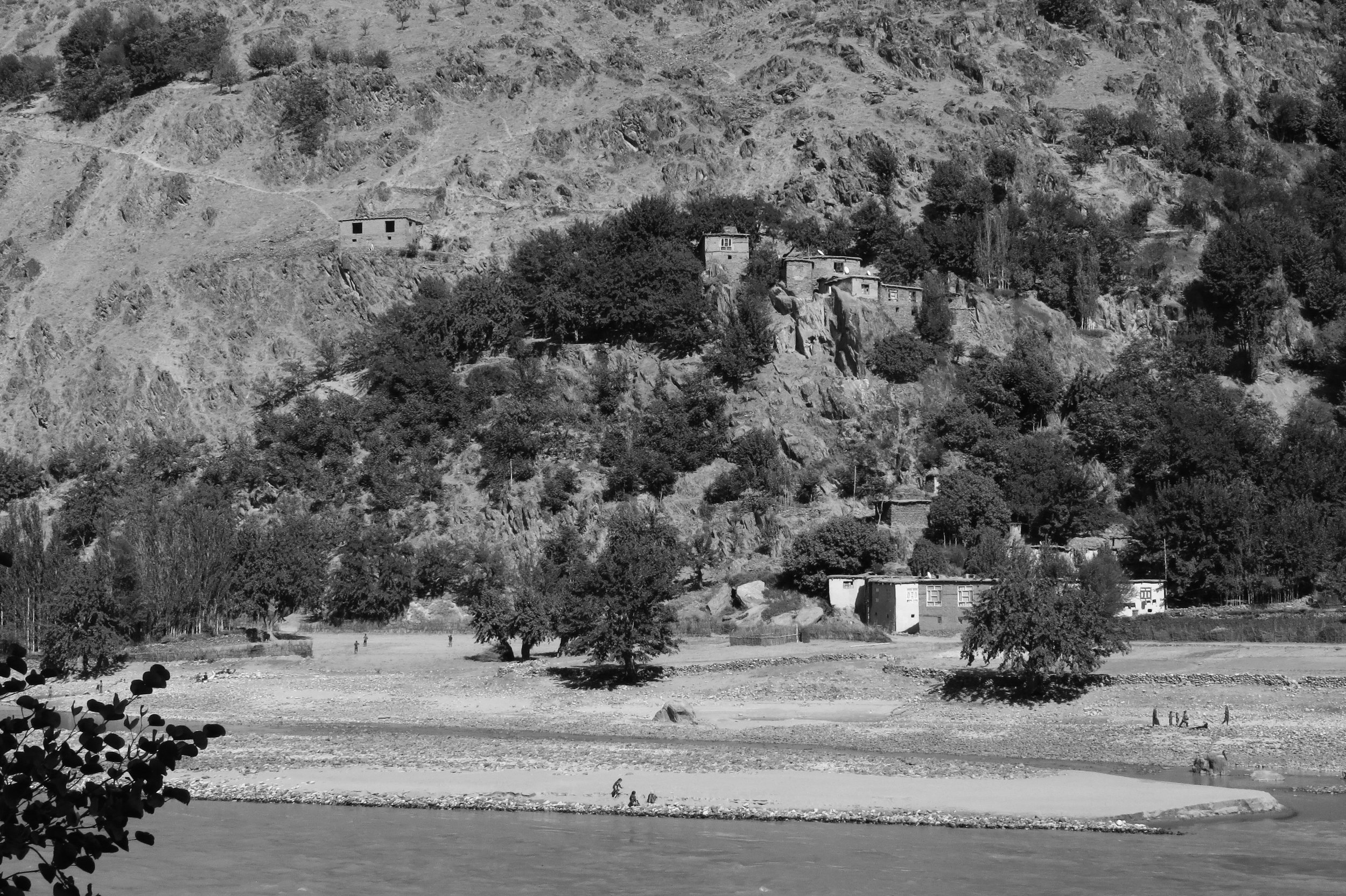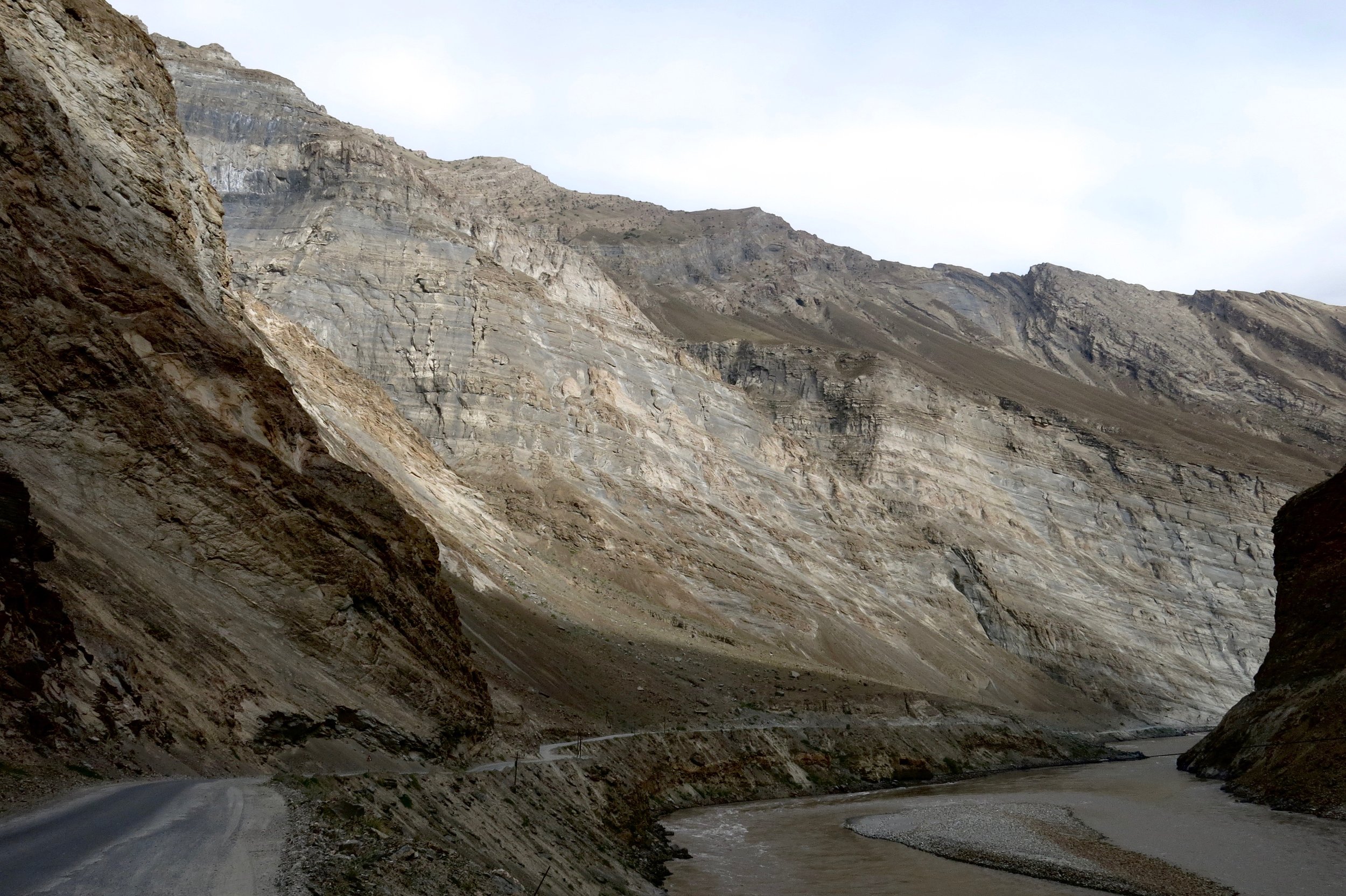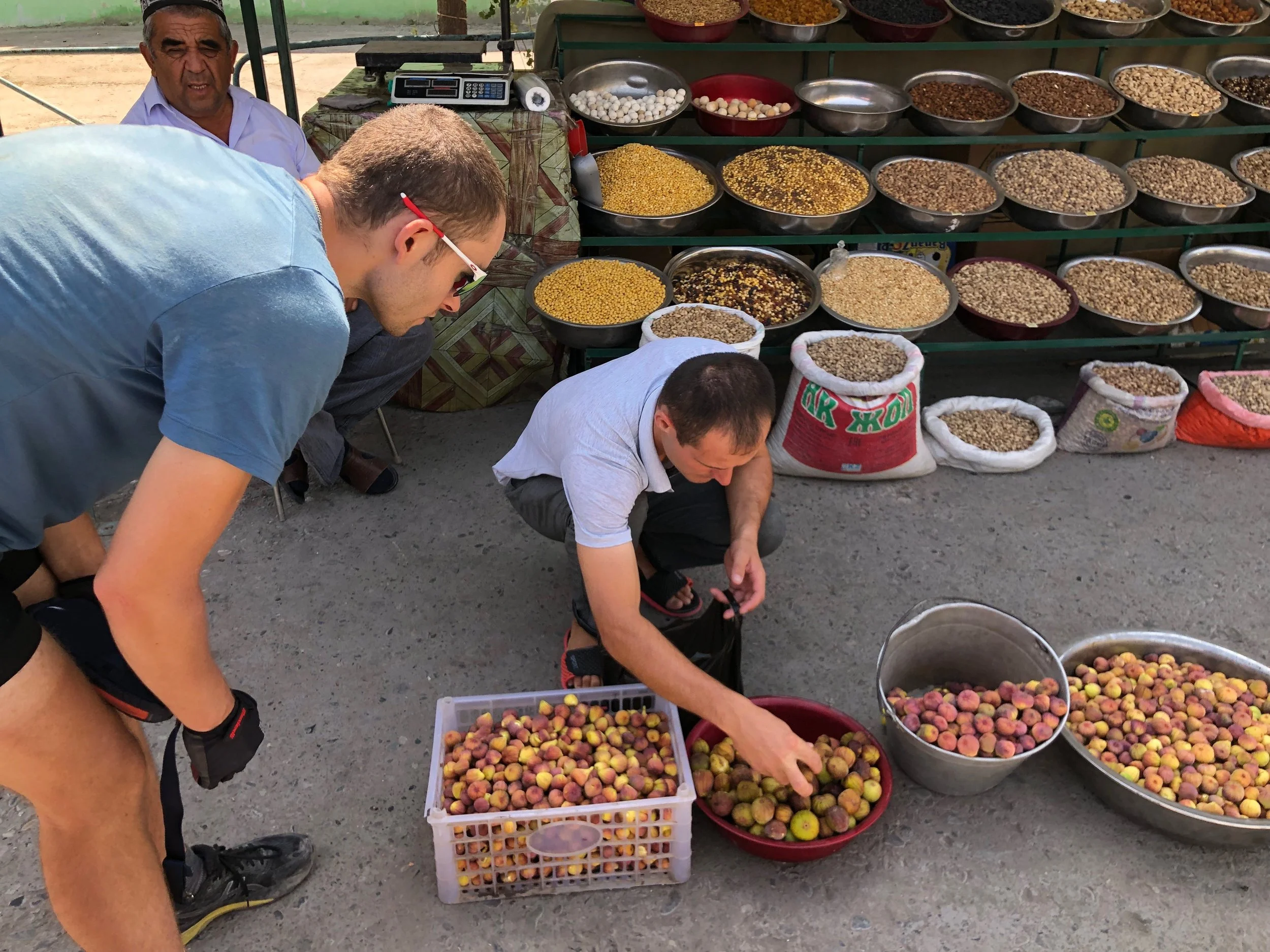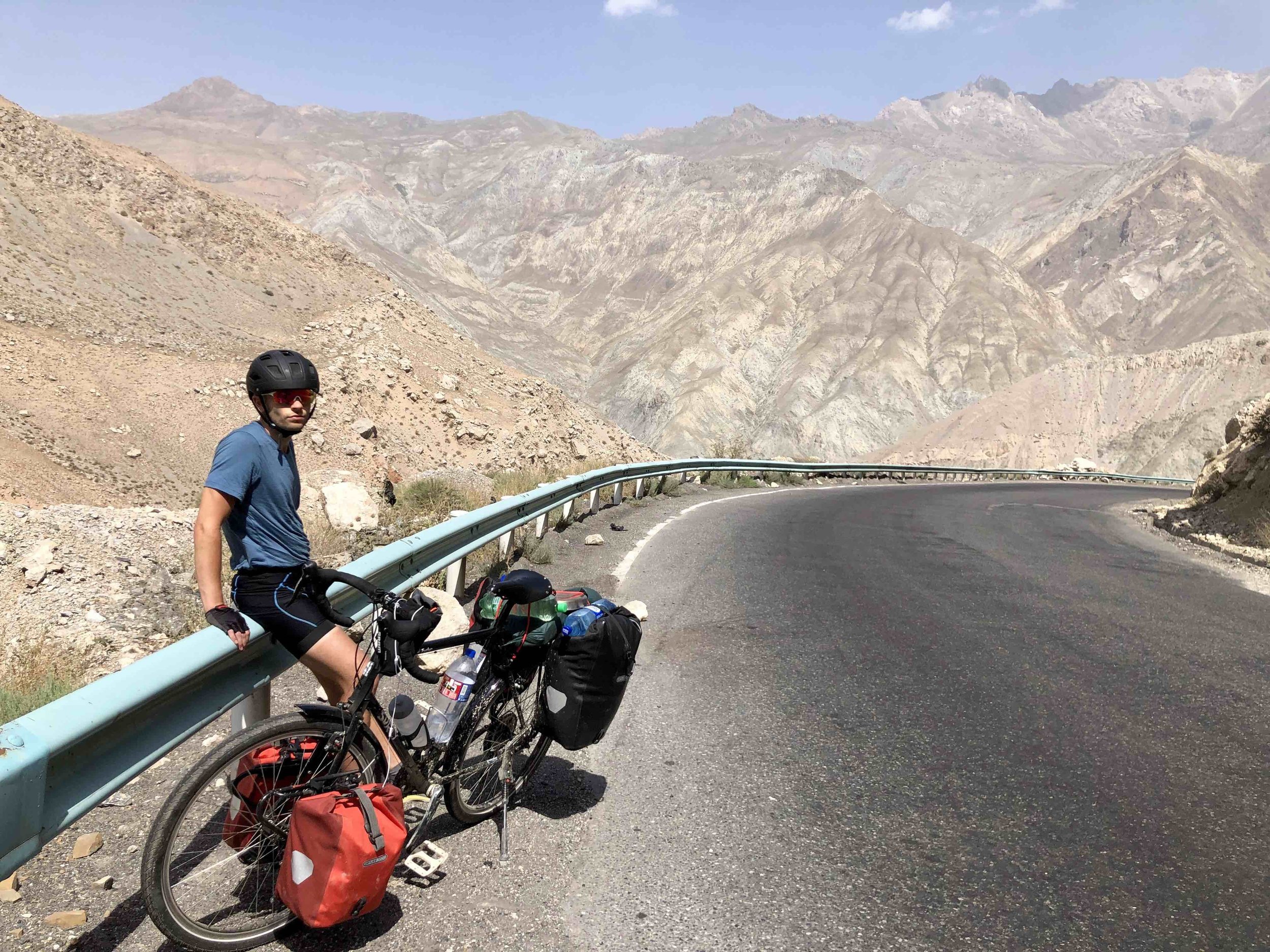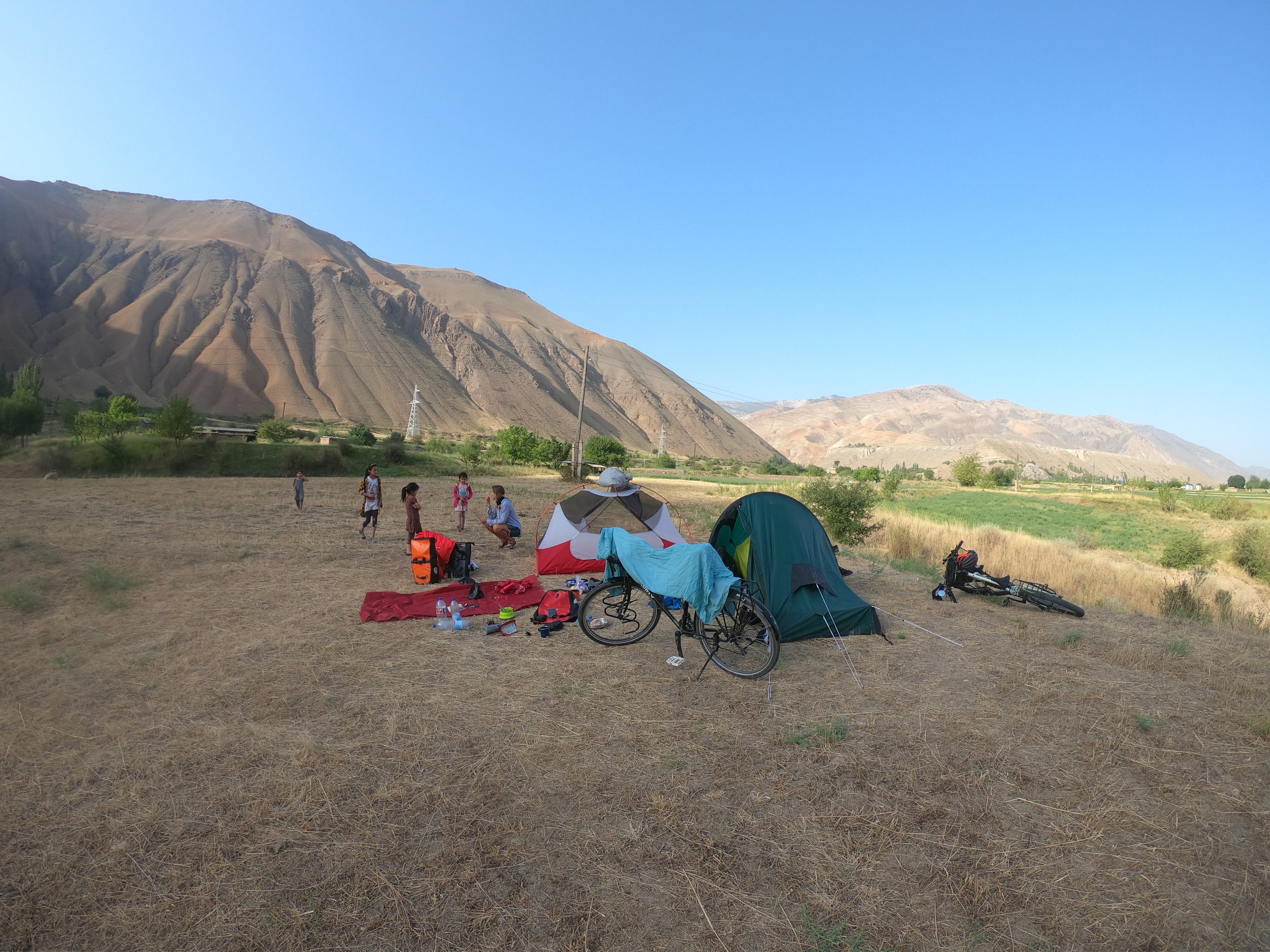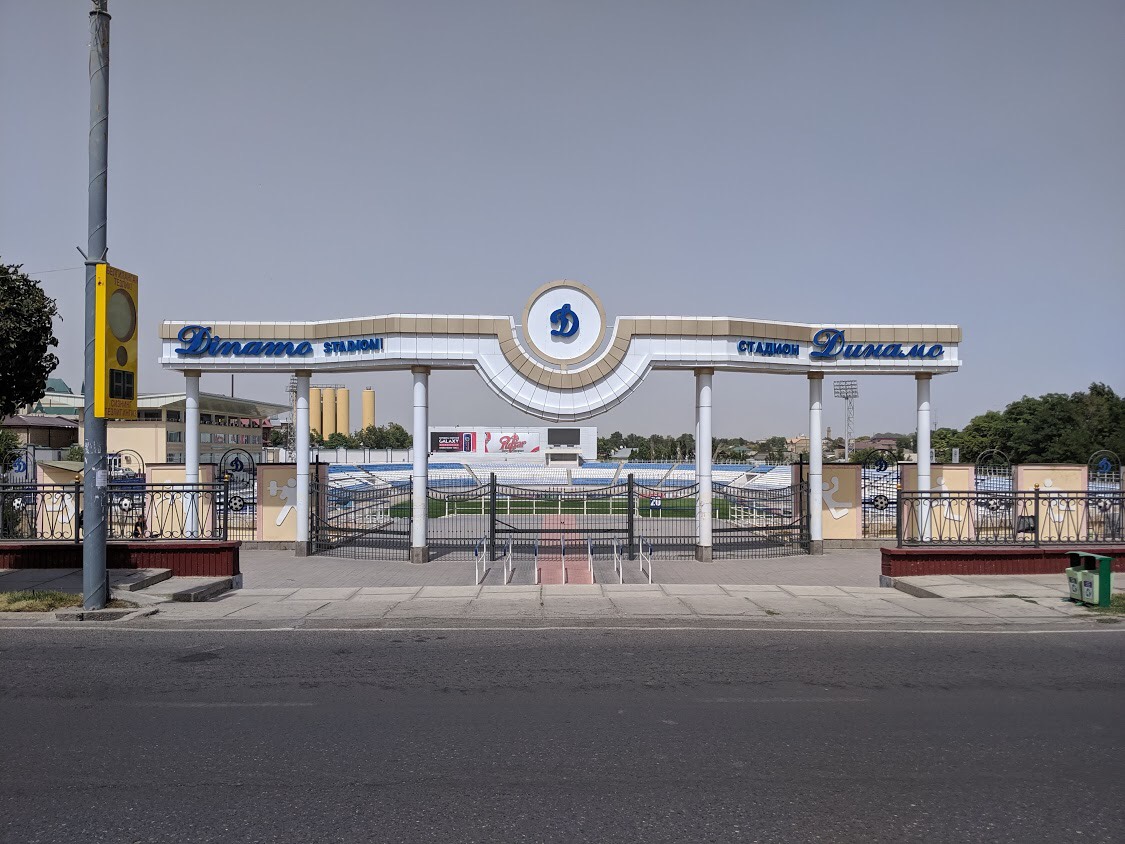On the third night of the Wakhan Valley I learned of a serious design flaw in my tent, which until now I could not fault.
Earlier in the evening we’d rejected a campsite because it had a bit of a yucky vibe, with an insipid waterfall dripping down a slimy cliff and empty bottles and trash lying around.
We decided instead to carry on to find somewhere nicer, which in hindsight was a critical turning point in how the night would pan out.
An hour before the pivotal decision
We arrived at a pleasant flat spot under some trees where the ground was hard-packed sand.
There were small but quite strong rivulets streaming across the ground which we initially thought would be the biggest problem for our tents.
Wrong. While this place was picturesque there was no protection from the rising wind.
The yucky spot had been sheltered.
Pitching each of the tents was a two person job in the rising gusts, and we realised the sand wasn’t actually that hard-packed.
It soon became clear that cooking any kind of dinner that required a degree of preparation (chopping onions for example) was out of the question as sand swirled around us.
We chewed a stale loaf of bread a man had tossed to us from his car, spread with Nutella.
Cooking the rice was a wrestle between lifting the lid enough to stir it while preventing sand from flying into the pot.
When the rice had cooked we both retired to our tents.
To my utter dismay, despite the whole thing being zipped up, the wind had whipped the sand up and under the fly and straight through the tent’s fine mesh windows.
The floor of my tent was coated in fine dusty sand.
I took a mouthful of my sad white rice. Crunch. It was full of sand too.
I gave up on the rice and climbed into my sleeping bag, telling myself it was only one night and I could cope.
But while you’re camping your tent is your home; a safe, comfortable cocoon where you’re warm and protected from the elements.
My sand-filled tent felt like a betrayal. It was my sanctuary and it had let me down.
Particles drifted through my torch beam and I wondered if there was enough air inside the tent or that I’d suffocate on the sand in my sleep.
I fished out some chafing cream to rub into my dry, cracked skin but instead succeeded in coating myself in a thick, gritty slurry.
The morning after
It was a long night.
The morning was a slow one as we painstakingly shook sand from everything. Thankfully the electronics that I’d bundled in layers of clothing and stuffing inside panniers appeared unharmed.
In hindsight we were mad to choose this sandpit of a campsite
Finally on the road I felt feeble and lethargic, in part from the lack of sleep and in part from the mouthfuls of sandy rice for dinner the night before.
We stopped in a tiny village with a shop and stepped inside to a veritable oasis.
There was yoghurt, piles of chocolate bars, trays of eggs and miraculously, a large block of hard cheese – an object we’d never yet laid eyes on in Tajikistan.
The shop owner kindly let us set up our stove on his porch and we set about making pasta with cheese and hard-boiling the eggs for later.
We were grateful for the protein later as we made the slow and maddening ascent up to the pass behind the village of Langar.
The push
In some sections the steepness caused our tires to skid and we resorted to pushing; my weak arms screaming while my leg repeatedly whacked my rear pannier.
It felt like we cycled through more herds in that afternoon than on the whole trip, mismatched collections of goats, sheep, cows and donkeys accompanied by a couple of shepherds and dogs to protect from roaming wolves.
Thought this was the top, it was not
The road claims a victim
When it became clear we wouldn’t make it the 6km to our planned campsite - an abandoned building where we hoped to pitch our tents - we began to scan the roadside for sheltered flat spots with a degree of panic as the light faded.
Jack grunted and swore at his bike as it flailed through the sand and loose stones, and I slipped and whacked my pubic bone on the top tube. We needed to find somewhere to sleep.
As we turned a corner I spotted a valley of soft grass, flat and protected from the wind by a rounded hillside.
The absolute joy brought by a sand-free alpine meadow. PHOTO: JACK EWING
Joyfully we began to pitch our tents, delighting at the ease the pegs went in and the absence of sand.
Two shepherds wandered down the slope to watch us in curious silence, likely a welcome entertainment to their mundane nightly routine.
Never has curry powdered rice, boiled eggs and raw carrots tasted so good
As we cooked dinner, one shepherd approached me, clutching in his fist a bunch of fuzzy lilac buds and leaves he must’ve picked nearby.
“Chai”, he explained as I inhaled the sweet smell of wild mint.
It felt as though the previous day had been a bad dream, or this was somehow a reward for our trials.
The fortuitous reveal of this meadow, right at the point when we agreed we were too buggered to go any further, felt like divine providence.
We’d resigned ourselves to a night of limited water when one of the shepherds pointed to an irrigation channel hidden in the grass above us.
The soaring Hindu Kush mountains were tinted pink by the sunset as the moon floated above.
There was absolute silence but for the odd shepherd’s call.
As we sipped mint tea with a drop of honey, sharing a block of remarkably tasty dark Russian chocolate we gazed at the inky sky strewn with stars.
“This is why we did this trip,” Jack said.
“Definitely”, I replied.
More mint from a different shepherd for our morning chai
Rolled from my tent at 6am to this view




























